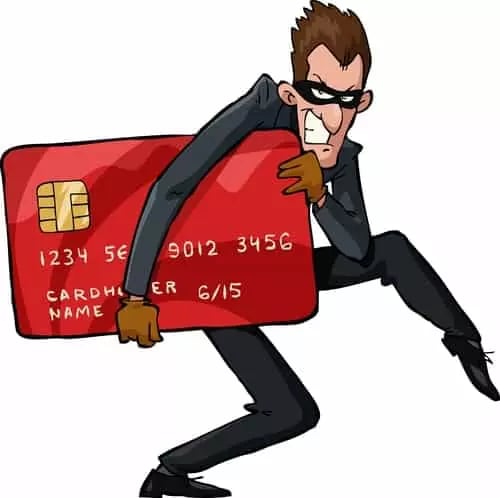Identity Theft is the illegal possession and manipulation of a person’s personal information such as name, social security number, credit card number, driver’s license number, bank account number, address, phone number, and personal identification number (PIN).
It is estimated that each year 10 million Americans fall victim to crimes related to stolen identities. These types of incidents vary from one fraud act to more complicated crimes. Many people found that a new credit card account has been opened on their name leaving an enormous amount of unpaid purchases charged to their credit. Some people found that car loans or a mortgage has been made in their name without their slightest knowledge. Others were just as surprised when they realized their bank accounts has been completely drained using forged checks or debit cards.
Be Cautious

Once they got this information, it could be as easy as calling your bank to increase your credit limit and that all your bills be sent to a new address. It could take months before you realize what has happened, since your bills are being sent to a new location.
The next thing you’ll know you have hundreds or even thousands of dollars unpaid balances on your credit card.
Just imagine what an infuriating and disheartening situation it could be for you!
Warning Signs
So how do you know if your identity has been stolen? The warning signs may include:
- Your mail does not reach you
- Unusual details or charges on your account
- You receive unexpected calls from creditors
- You receive notices for a new credit card
- You have been denied credit
What should you do? You don’t really need to wait to for your creditors to call you up and inform you about fraudulent charges on your account. You should always keep yourself updated on all your credit accounts. Many credit card companies offer a service called credit watch and they will alert you every time a new account or inquiry is placed against your credit report.
Be cautious about your personal information. Do not write it or leave it anywhere except in a safe place. Do not carry all your credit cards on your wallet all the time. Bring only the ones you need to use. Be careful when using ATM, especially if there is another person behind you. Shred past mail, receipts, bills before you trash them. Destroy unused credit cards. Do not give any personal information through e-mail.
Take Action
If your wallet has been stolen, notify your credit card issuer immediately. It is best to have the card cancelled and get another one with a new PIN. If you have not been receiving your mail, report this to your local postal inspector.
If you do suspect of a fraud, place an alert on your accounts right away. You may choose an initial alert which lasts for 90 days on your credit report. However, if you have been a victim of identity theft, you may ask for an extended alert on your credit report which lasts up to seven years. To place a fraud alert, you may contact any of the three consumer reporting companies through their toll-free numbers:
- Equifax: 1-800-525-6285; www.equifax.com;P.O.
Box 740241, Atlanta, GA 30374 – 0241 - Experian: 1-888-EXPERIAN
(397-3742); www.experian.com;P.O.Box 9532 Allen , TX 75013 - TransUnion: 1-800-680-7289; www.transunion.com; Fraud Victim
Assistance Division, PO Box 6790, Fullerton, CA 92834-6790
You’ll be entitled for a free credit report so you can personally check on your accounts. Examine all the details on report, any companies you haven’t done business with, unfamiliar accounts, and if there are any unexplainable charges. Make sure that all your personal information like your name, address, SSN is exactly correct. If there is any incorrect detail, update it immediately.
If your account has really been corrupted, speak with someone from the fraud department of that company and notify them about it. Follow it up with a written report sent through registered mail. The letter must state that you dispute such charges due to their fraudulent nature. Request that these fraudulent debts be resolved and that the account be closed.
File a report with your local police. To find out if your state law accepts reports on identity theft, check your state Attorney General’s office at www.naag.org. You should also file a complaint at the Federal Trade Commission (FTC).
Contact
them by phone at 1-877-IDTHEFT (438-4338); TTY: 1-866-653-4261, or by mail at::
Identity Theft Clearinghouse
Federal Trade Commission
600 Pennsylvania Avenue,
NW, Washington, DC, 20580
You can also visit the FTC website at www.consumer.gov/idtheft.
